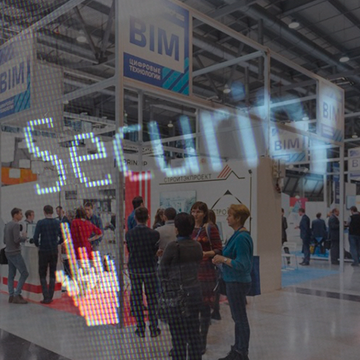Cybersecurity will be one of the discussed topics at 100+ Forum Russia

Experts from all over the world will share their insight into what threats smart cities with automated life-support systems face and how to protect modern metropolises from cyberattacks.
At the session Cybersecurity of Cities, experts will talk about risks involved in smart infrastructures and cyber threats of construction and use of smart cities buildings. Another topic of discussion will be methods of intelligent protection of urban environment. The list of experts includes: Kirill Kruglov – Senior Researcher and Developer, Kaspersky Lab (the company is a part of the non-profit project Securing Smart Cities); Grigoriy Akhunov – Head of Cybersecurity in PAO Rostelecom, Ural Region; Sergey Kazakov – Head of Certification Center, SKB Kontur; and others.
For the first time in the history of the forum, one topic of discussions will be the creation of a digital system of modern cities protection. Infrastructure logistics that ensures comfortable life conditions is becoming increasingly more computer-assisted. A unified information network will allow us not only to control and protect vital systems of any given city and building but also to manage big data; in other words, perform predictive analytics – predict and prevent potentially dangerous situations. Aside from this, experts will suggest methods of increasing levels of security of digital technologies for urban development. "Smart cities of the future are safe cities above all. We are going to talk about technologies that will help us ensure safety and security in their widest sense", – said Vera Belous, Executive of Organizing Committee.
Experts will share their knowledge on how to protect modern smart cities from cyber attacks and predict when metropolises will be fully protected by digital technologies: "Right now, all elevators, fire-extinguishing systems and surveillance systems, traffic lights, lighting, electricity supply and other life support systems are computer-controlled. These computers collect and process data. Just like any office system with access to the global web, they may be susceptible to viruses and spyware. The most dangerous type of attacks in this regard are pointed attacks. It's when somebody attempts to cause system failure, steal data or change something in system functions. System failure can result in a lot of unwanted things. For instance, all traffic lights in a city can go out or all electricity in houses. In 5-10 years our cities will be significantly more digitalised – there will be driverless cars which will also be automated. System failures in these may result in life threatening conditions – says Kirill Kruglov. – almost one in every three systems related to smart cities faces malware threats at least once every six months. To ensure security, we are currently developing special software for equipment which controls, let's say, traffic lights or an air conditioner. This software will stop any unwanted process which may start as a result of a system failure or a directed attack. Any attempt to cause these things will be stopped in its root on the software level".
Grigoriy Akhunov will present methods of improving digital "intelligence" of cities that are already in use today: "Any infrastructure is potentially susceptible to cyber threats. Its stability is ensured by protection mechanisms. Extra attention, in this regard, is demanded by data processing systems – video analysis systems, automated systems for management of objects of crucial importance, public Wi-Fi's. When one is involved in a large project, whether it's in business or in urban development, it's important to avoid risks connected with cyberattacks and introduce new-generation products and services necessary for digital economy".
